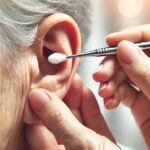
Hearing loss is often dismissed as a minor inconvenience that comes with age, but the reality is far more concerning. Studies have shown that untreated hearing loss can lead to significant cognitive decline, including an increased risk of dementia and other cognitive impairments. By addressing hearing loss early, you can protect your cognitive health and maintain a better quality of life.
The Link Between Hearing Loss and Dementia
Research from Johns Hopkins University has revealed a strong connection between hearing loss and dementia. People with untreated hearing loss are up to 50% more likely to develop dementia compared to those with normal hearing . This is due to the extra strain that hearing loss places on the brain. As the brain struggles to process sounds, it diverts resources from other important functions such as memory and thinking, accelerating cognitive decline.
Cognitive Strain and Its Consequences
When you experience hearing loss, your brain must work harder to interpret sounds. Over time, this increased effort can lead to cognitive fatigue. Studies show that the areas of the brain responsible for memory and problem-solving can weaken as a result of this strain. This accelerates the natural aging process and contributes to cognitive decline.
Social Isolation: A Silent Threat
Hearing loss often leads to social isolation, as people with hearing difficulties may avoid social interactions out of frustration or embarrassment. Social isolation is another significant risk factor for cognitive decline. Without regular social engagement, the brain loses essential stimulation, which can further hasten cognitive deterioration.
Protecting Your Cognitive Health with Hearing Aids
The good news is that addressing hearing loss can significantly reduce the risk of cognitive decline. Wearing hearing aids can help you stay connected and keep your brain engaged. Research indicates that those who treat their hearing loss are less likely to develop dementia than those who leave it untreated .
At Hearbase, our expert audiologists provide comprehensive hearing tests and personalised hearing care solutions to help you protect your cognitive health. By taking action now, you can reduce the risk of cognitive decline and enjoy a better quality of life.
Untreated hearing loss can significantly impact your cognitive health and increase the risk of dementia. Protect your brain and overall well-being by addressing hearing loss early. Contact Hearbase today to book a consultation and take the first step towards preserving both your hearing and cognitive health.
References
1. Johns Hopkins Medicine: This study highlights the link between hearing loss and cognitive decline, showing that people with hearing loss may experience faster rates of brain atrophy and are more likely to develop dementia. Read more here.
2. National Institutes of Health (NIH): Research from the NIH found that hearing aids can slow cognitive decline in people at high risk of dementia, particularly those with moderate to severe hearing loss. Read more here.
3. The Lancet: This research identifies hearing loss as a significant modifiable risk factor for dementia, emphasizing the importance of addressing hearing issues early. Read more here.
4. Alzheimer’s Society: This resource underscores the connection between hearing loss and an increased risk of dementia, suggesting that protecting your hearing can reduce your dementia risk. Read more here.

